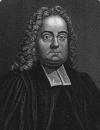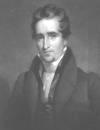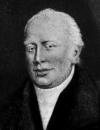"Deliver Us From Evil"
Commentary on the Lord's Prayer
This section is a line-by-line exploration of the Lord's Prayer through the writings of famous theological commentators.
"But deliver us from evil" is the last of the seven petitions in the Lord's prayer (the first three address God, the second four are prayers related to our needs and concerns.) The final request is for protection by our Father in heaven. When Jesus was tempted by Satan, he declared:-
'Man shall not live on bread alone, but on every word that comes from the mouth of God.
In times of trial, Jesus recognises the Lord as His source of deliverance. Likewise we are to depend on God when evil is at our door.

resources on this page
Adam Clarke's on "Deliver us from evil"
Albert Barnes on "Deliver us from evil"
(Commentary on Matthew chapter 6, verse 13)
read more commentaries and studies on the Lord's Prayer in our In-Depth Commentary Section
Matthew Henry on "Deliver Us From Evil"
(2.) Positively: But deliver us from evil; apo tou ponerou--from the evil one, the devil, the tempter; "keep us, that either we may not be assaulted by him, or we may not be overcome by those assaults:" Or from the evil thing, sin, the worst of evils; an evil, an only evil; that evil thing which God hates, and which Satan tempts men to and destroys them by. "Lord, deliver us from the evil of the world, the corruption that is in the world through lust; from the evil of every condition in the world; from the evil of death; from the sting of death, which is sin: deliver us from ourselves, from our own evil hearts: deliver us from evil men, that they may not be a snare to us, nor we a prey to them."
Source: Matthew Henry's Commentary on the Whole Bible Volume V (Matthew to John)
Adam Clarke
on "Deliver Us From Evil"
But deliver us from evil] APOTOUPONHROU, from the wicked one. Satan is expressly called OPONHROS, the wicked one. Mt 13:19, 38, compare with Mr 4:15; Lu 8:12. This epithet of Satan comes from PONOS, labour, sorrow, misery, because of the drudgery which is found in the way of sin, the sorrow that accompanies the commission of it, and the misery which is entailed upon it, and in which it ends.
It is said in the MISHNA, Tit. Beracoth, that Rabbi Judah was wont to pray thus: "Let it be thy good pleasure to deliver us from impudent men, and from impudence: from an evil man and an evil chance; from an evil affection, an evil companion, and an evil neighbour: from Satan the destroyer, from a hard judgment, and a hard adversary." See Lightfoot.
Deliver us] RUSAIHMAS-a very expressive word-break our chains, and loose our bands-snatch, pluck us from the evil, and its calamitous issue.
Source: Adam Clarke's Commentary on the Bible
Deliver us from evil. The original, in this place, has the article-- deliver us from THE evil--that is, as has been supposed, the evil one, or Satan. He is elsewhere called, by way of eminence, the evil one, Mt 13:19, 1Jn 2:13, 14, 3:12. Deliver us from his power, his snares, his arts, his temptations. He is supposed to be the great parent of evil, and to be delivered from him is to be safe. Or it may mean, deliver us from the various evils and trials which beset us, the heavy and oppressive calamities into which we are continually liable to fall.
Source: Barnes' New Testament Notes
Next: "For Thine Is The Kingdom"
about the commentary writers
 • Matthew Henry (1662-1714) was a non-conformist English clerygman. His commentaries on the scriptures are intended as a devotional guide to the Bible, rather than as a critical study.
• Matthew Henry (1662-1714) was a non-conformist English clerygman. His commentaries on the scriptures are intended as a devotional guide to the Bible, rather than as a critical study.
 • Albert Barnes (1798-1870) was a Presbyterian minister and American theologian. His 'New Testament Notes' are invaluable in helping to understand difficult passages of scripture. Barnes frequently references the original Greek to reveal the meaning of the text.
• Albert Barnes (1798-1870) was a Presbyterian minister and American theologian. His 'New Testament Notes' are invaluable in helping to understand difficult passages of scripture. Barnes frequently references the original Greek to reveal the meaning of the text.
 • Adam Clarke (1769 or 62 to 1832) was a Methodist minister and biblical theologian. His extensive commentary on the New Testament, at around 6000 pages long, is one of the longest works on the bible ever written by one person.
• Adam Clarke (1769 or 62 to 1832) was a Methodist minister and biblical theologian. His extensive commentary on the New Testament, at around 6000 pages long, is one of the longest works on the bible ever written by one person.
